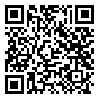Volume 5, Issue 7 (2020)
JCSFA 2020, 5(7): 139-165 |
Back to browse issues page
Download citation:
BibTeX | RIS | EndNote | Medlars | ProCite | Reference Manager | RefWorks
Send citation to:



BibTeX | RIS | EndNote | Medlars | ProCite | Reference Manager | RefWorks
Send citation to:
Moghadasi niya M. Tinguistic study of invitations in the cultural context of Iran and Iraq. JCSFA 2020; 5 (7) :139-165
URL: http://jcsfa.modares.ac.ir/article-39-58122-en.html
URL: http://jcsfa.modares.ac.ir/article-39-58122-en.html
Abstract: (1513 Views)
Comparative and linguistic study of invitations in the cultural context of Iran and Iraq Involvements as linguistic genre are regarded as sociological data and are considered as an indicator of the relationship between social phenomena. By examining invitations of a particular time period, discourses derived from phenomena Social that period. This comparative study, which is based on the analysis of the genre and the critical analysis of discourse, attempts to explore the structure of wedding cards written in Arabic and Persian languages, and the role of social and cultural values. In its formulation. Familiarity with the social approaches of two different cultures, studying the impact of social and cultural factors on invitations, comparing the structure of invitations and explaining the impact of social phenomena on linguistic phenomena are among the most important goals of this research. Since this research examines the social approaches of the two countries and increases the level of recognition of different cultures, it seems necessary to do so. The results of the study show that the importance of the diversity of text and forms of wedding cards in Iran is more significant than in Iraq, with the title acquired in Iraq becoming more and more important, religious and patriarchal categories have a crucial role in the structure of wedding cards in There are two cultures, with the difference that the role of these two categories in the wedding cards of Arab countries is more colorful than Iran.
Article Type: Original Research |
Received: 2019/10/14 | Accepted: 2020/09/15 | Published: 2020/10/21
Received: 2019/10/14 | Accepted: 2020/09/15 | Published: 2020/10/21
| Rights and permissions | |
 |
This work is licensed under a Creative Commons Attribution-NonCommercial 4.0 International License. |







